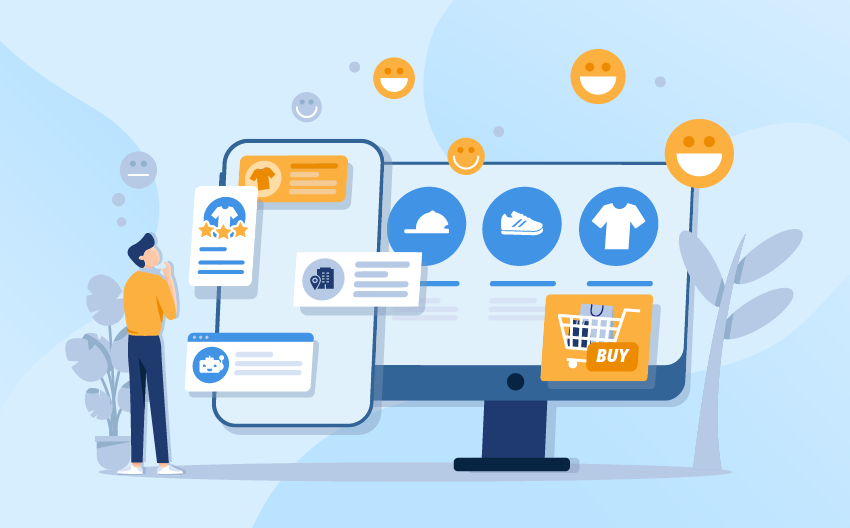
In the fast-paced world of online retail, businesses often grapple with the choice between creating their own website or leveraging established marketplaces. While both approaches have their advantages, having your own e-commerce website is indispensable for long-term success. Here’s why:
Direct Marketing Opportunities:
Customer Data Ownership: Owning your website allows you to collect and utilize customer data directly. You can build an email list, which is crucial for direct marketing efforts.
Personalized Campaigns: With access to customer contact information, you can create targeted email marketing campaigns, promote new products, offer personalized discounts, and foster repeat business, enhancing customer loyalty.
Brand Building and Customization:
Unique Brand Identity: Marketplaces often display your products alongside those of competitors, making it difficult to stand out. A standalone website offers full control over your brand’s presentation, from logos and color schemes to overall messaging.
Memorable Experience: You can create a unique and memorable brand experience tailored to your audience, which is vital for building a strong, recognizable brand.
In-depth Customer Insights:
Data-Driven Decisions: Your website allows you to gather comprehensive data on customer behavior, preferences, and purchase history. This data is invaluable for informing marketing strategies, product development, and customer service improvements.
Enhanced Personalization: Understanding your customers on a deeper level enables more personalized interactions and product recommendations, driving customer satisfaction and loyalty.
Flexibility and Control:
Custom User Experience: You have complete control over the design, layout, and content of your website, allowing you to tailor the user experience to your brand’s identity and your customers’ needs.
Strategic Freedom: Unlike marketplaces with strict rules and limitations, your website gives you the freedom to experiment with different marketing tactics, pricing strategies, and product offerings.
Integration with Third-Party Tools:
Operational Efficiency: Platforms like Shopify, Magento, and WooCommerce offer seamless integration with a variety of third-party applications, from order fulfillment and inventory management to marketing automation.
Enhanced Capabilities: These integrations streamline operations and enhance efficiency, allowing you to focus on growing your business.
Original Marketing Initiatives:
Creative Freedom: Your website allows you to implement innovative and original marketing campaigns tailored specifically to your target audience.
SEO and Social Media: You can optimize your site for search engines (SEO), run targeted social media campaigns, and utilize content marketing to attract and retain customers.
Loyalty Programs: You have the freedom to design and run your own promotions, discounts, and loyalty programs to incentivize repeat purchases and boost sales.
Conclusion:
Having your own e-commerce website is essential for building a strong online presence, establishing a unique brand identity, and driving sustainable business growth. While marketplaces provide immediate visibility and access to a broad audience, they come with significant limitations that can impede differentiation and growth. Investing in your website grants you autonomy, flexibility, and the ability to create a distinctive and compelling brand experience for your customers.
By establishing your own e-commerce site, you position your business for long-term success and customer loyalty. If you need assistance with setting up your e-commerce website or managing online orders, numerous resources and professionals are available to help you navigate this essential process.
How does having your own e-commerce website enhance brand building and customization?
What advantages does owning an e-commerce website provide in terms of customer insights and data-driven decision-making?
How does having your own e-commerce website offer flexibility and control compared to selling on marketplaces?



